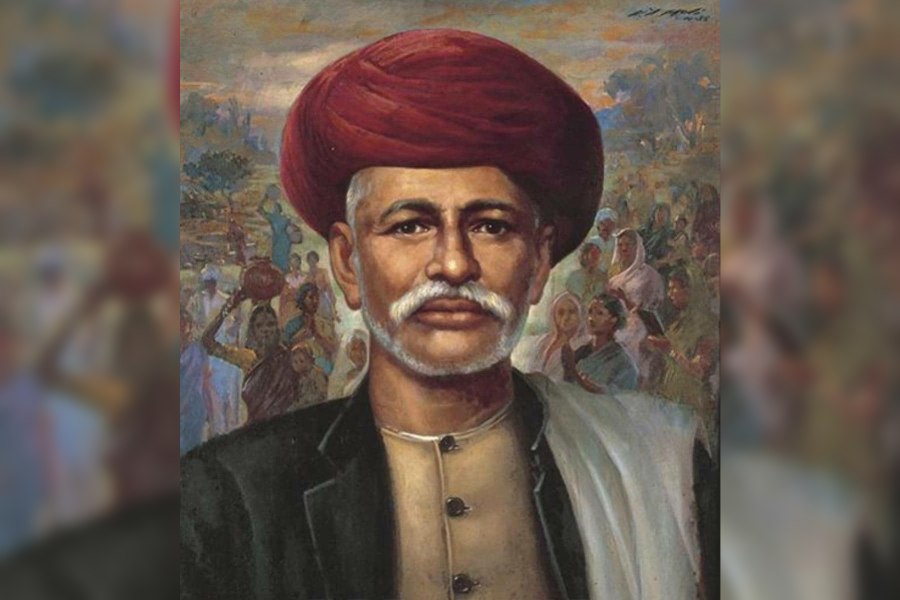Book: THE THIRD EYE AND OTHER WORKS: MAHATMA PHULE’S WRITINGS ON EDUCATION
Author: Rohini Mokashi-Punekar
Published by: Orient Blackswan
Price: Rs 855
At a time when inclusivity and access to affordable education garner considerable space in the public discourse, the words of Mahatma Jotiba Phule from the 19th century ring true. His exhortations and arguments that the upliftment of historically deprived classes, castes and women depends on them logically questioning the subjugators on matters of learning and scripture and that their own aspirations can only be met by embracing education find resonance in modern debates on inclusivity of communities and genders across primary and higher educational institutions in India and abroad. In this book, Rohini Mokashi-Punekar presents a compendium of Phule’s writings on the state of education in colonial India, his satires on Brahminical influence in access to education, and his urgent pleas to the British government to fund education for the lower castes and women.
Phule’s subversive play, Tritiya Ratna, is translated into English for the first time and forms the central piece of the book. It highlights how a Brahmin pandit feeds on the fears of a lower caste Mali-Kunbi couple for their yet-to-be-born child and browbeats them into organising a substantial feast for several Brahmins. The play introduces a Christian missionary and a Muslim bystander who converse with the Mali-Kunbi husband. The missionary’s promptings urge him to question his deep-seated beliefs on the existing structure and norms of Hindu society as dictated by Brahmins while bemoaning the lack of his own education that precludes him from standing up to such oppression. The play’s submission by Phule to the Dakshina Prize Committee, which overwhelmingly comprised of Brahmins, and its subsequent rejection set the tone
for Phule’s sustained campaigns for bettering the status of the deprived castes, caste and gender equality in education, radical literary experiments, and the championing of better widow care and remarriage.
Even more biting is Phule’s satirical ballad Vidyakhatyateel Brahman Pantoji (Brahmin Teachers in the Education Department), which is emblematic of the political and persuasive power that poetry can wield. It shreds the apparently learned persona of the Brahmin pundit who lords over his school but is only concerned with furthering the education of children from his own brethren while being a terror for the Shudra kids who inevitably drop out of school. Phule urges the colonial administration that simply setting up schools in villages is not enough: they need to be run by teachers from the communities whose upliftment and education are being sought. This corollary is extended further in his seminal work, Gulamgiri (Slavery), whose preface is included in this compilation. He highlights the impartial role played by Christian missionaries in furthering education and pleads for effective government oversight and investment in education in his Memorial Addressed to the Education Commission, also included in this volume.
Mokashi-Punekar’s concise and thoughtful collection of Phule’s writings highlights the centrality of education in the history of subaltern protest and assertion of rights in India and Phule’s own importance in the history of Indian education, Dalit studies and wider sociological themes. Considering its focus on education and the empathy it instils, this is a timely volume given that the nation continues to be embroiled in protests against a seemingly overarching majoritarian governance framework.











